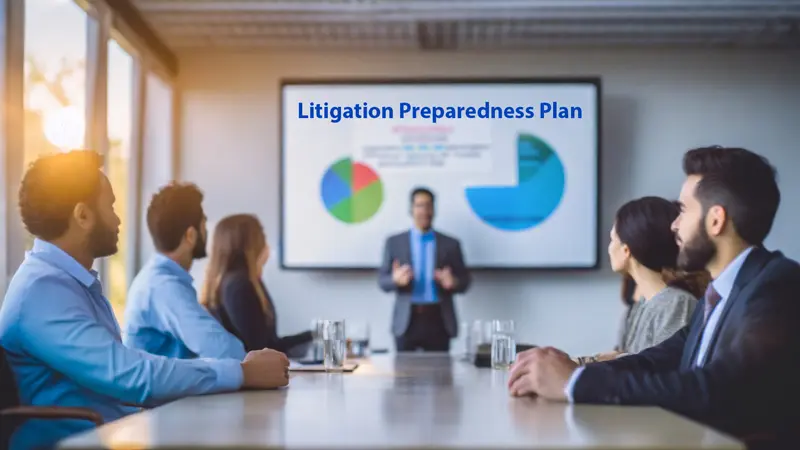We Help Law Firm Prepare Litigation Response Plans for Corporate Clients
Using e-discovery effectively is essential for law firms to fully prepare cases for court. We help law firms prepare Litigation Response Plans for their corporate clients. The law firm provides the legal services and legal expertise, and we help formulate the technical part of the Litigation Response Plan and provide the training to corporate IT.

Why Your Clients Need a Litigation Response Plan
Legal problems can devastate a company. Consider, for example, the costs. Your client can lose millions, even billions of dollars, if you lose the case, and that’s just the amount awarded to the winning party. But this is not all.
How much is your client’s reputation worth? As the case drags on, the media can pounce on the problem and make your client’s problems tomorrow’s headlines. The stocks will plummet. The investors will pull out. The consumers may even lose their confidence, shift to a competitor, and hit corporate sales.
The effects on company morale, the strain on corporate resources, the opportunities lost as they spend more time saving their business than building it—those also represent the “losses” the company must shoulder if you are unprepared for a legal disaster.
The Importance of a Litigation Response Plan
Through a Litigation Response Plan, your corporate clients can be more adequately prepared to respond decisively in the event of a lawsuit.
The Litigation Response Plan has two parts: legal and technical. The legal part of the plan covers legal strategies that accurately evaluate the legal risks intrinsic to a specific company, industry and type of matter. The technical part of the plan deals with computer and other electronic data. The law is built on facts, and facts must be preserved, including documents, emails, and databases. The plan must also include data culling strategies, search strategies, and review strategies, to quickly find relevant, non-privileged data.
Data Preservation
It is important to preserve data and make it easily accessible. This may include forensic collection of hard drives or computer images to preserve the data in a legally defensible way, while maintaining the chain of custody of all evidence. For this information to be admissible in court as evidence, its security, authenticity and chain of custody need to the verifiable.
Data Storage and Retrieval
Data collected for litigation must be stored and organized in a way to make attorney review easier.
For a Litigation Response Plan to work, the team needs to be able to access information quickly. Streamlining the available data so that only the most essential is retained, and duplicates are removed are hugely effective ways of accomplishing this. Accurately indexing this information ensures greater search accuracy and cross-indexing.
Of course, security is a key concern too. Data encryption, passwords, and firewalls are all necessary if files are to be accessed only with the proper authorization ensuring the best possible security to sensitive and highly confidential information. Digital files must also be protected by employing backup systems.
Database of Expert Witnesses
Documents are not the only source of data and evidence that a law firm requires. Sometimes it is necessary to call in expert witnesses who can provide their own professional input or add credibility to existing findings. Being able to locate and refer to the right expert quickly for any specific case is essential, so an effective Litigation Response Plan needs to include a detailed database of those experts, with a cross-indexing system that accommodates easy referral.
How a Litigation Response Team can Help
How a Litigation Response Team can Help
Most companies will have an in-house legal department to handle legal matters. To be effective, they need the support of a Litigation Response Team, which may include IT, Human Resources, Company Management and others. While lawyers handle the legal strategies, others on the team help gather the facts and access the necessary evidence for litigation.
The Litigation Response Team also evaluates the company’s overall systems and workflow and considers upgrading technology to manage the preservation, processing, searching, reviewing, producing, and presentation of evidence at trial.
The result is the Litigation Response Team helps the corporation, and its outside counsel, be more prepared and successful in litigation matters
